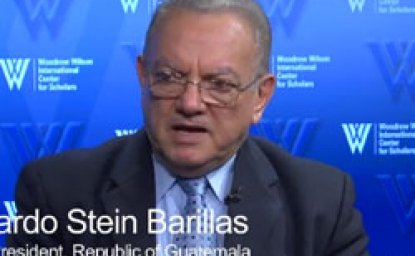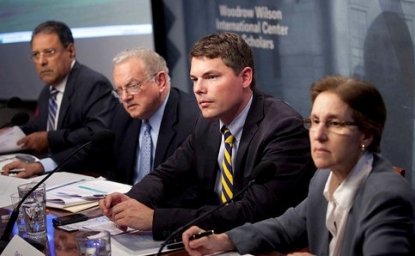[...]
Just what that means in practice is harder to say. For a deeper understanding of how Guatemala sees itself within the debate, we turn to Guatemalan Secretary of Planning Fernando Carrera. Carrera is the man who many say is the architect of Perez's proposals on drug-related issues. He recently gave a talk at the Woodrow Wilson Center for International Scholars entitled "Drug Policy and Democracy in Central America: A View From Guatemala," that provides a crucial insight into how Guatemala is positioning itself in the ever-turbulent discourse on drug legalization.
"There is a gorilla in the room we need to talk about"
Carrera said much of the drive for Guatemala to open up a space for debate on a change in drug strategy comes from the realization that governments have historically refrained from tackling the issue at all. As Carrera put it: "There is a gorilla in the room we need to talk about."
The premise of the current approach to combating drug trafficking through eradication is fundamentally "Utopian," according to Carrera. We have rationally accepted that we cannot adopt this policy with alcohol and tobacco, yet somehow drugs have been placed in a separate category, he said.
This is not to say that Guatemala advocates the complete liberalization of drugs, where consumption and trafficking are dictated by the market. Carrera stressed that, like alcohol and tobacco, the government knows drugs can be bad for people, and should be regulated accordingly.
Such a shift toward the creation of a regulated market for "commodities with negative consequences" would create numerous challenges for both society and government institutions. Carrera admitted as much and highlighted four key challenges that would arise:
- How to reduce violence and collateral damage related to drug markets, such as prostitution and theft. Even in a move from prohibition to regulation, this violence may not immediately disappear.
- The strengthening of public health systems and social protection schemes.
- The creation of economic opportunities for drug traffickers, since their business would not be as lucrative as under a system of prohibition.
- Regulating the sale of such commodities (drugs). For example, how would they be advertised (if at all)? What would the age restrictions be? What taxes would be imposed? How would society be educated on the use of these drugs?
[...]
Please click here to continue reading.




